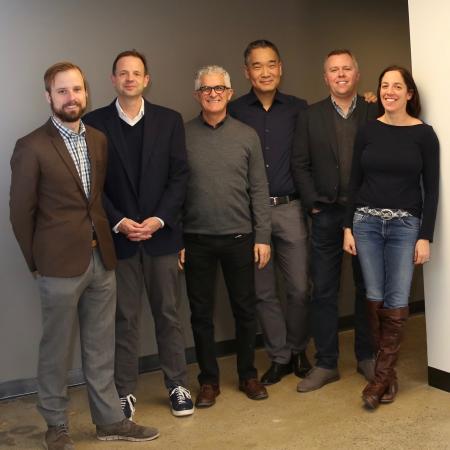Environmental Engineering Again Makes the U.S. News Rankings Top 10

Making it four years in a row, the Environmental Engineering program at Yale has made it into the top 10 of the U.S. News & World Report’s Graduate Engineering Rankings.
 The rankings, which were released today, list the program as 9th best in the US. Jaehong Kim, professor and chair of Chemical & Environmental Engineering, said the consistently high rankings are consistent are a testament to the high quality of the work coming from the department.
The rankings, which were released today, list the program as 9th best in the US. Jaehong Kim, professor and chair of Chemical & Environmental Engineering, said the consistently high rankings are consistent are a testament to the high quality of the work coming from the department.
"Our ranking reflects that we are the powerhouse of impactful research and publication,” Kim said. For example, Kim noted that in 2018 alone, five faculty members in the program published a total 76 papers in top journals in the field, including Environmental Science & Technology, Nature Nanotechnology, and Nature Sustainability.
“It also reflects the fact that many of our graduates and postdocs are currently holding academic positions in the U.S. and around the world, contributing to Yale's legacy in the field of environmental engineering.”
Guided by Yale’s global perspective, the program began in 1998 as an interdisciplinary program within the Department of Chemical Engineering and was designed to focus on areas of major importance to the earth's future and build on institutional strengths in environmental, biological, and engineering sciences. In 2010, the department was renamed the Department of Chemical & Environmental Engineering to more accurately reflect the scope of the research and the degree offerings. The program now has six full-time faculty: Kim, Menachem Elimelech, Julie Zimmerman, Drew Gentner, Jordan Peccia, and John Fortner.
Also contributing to the program’s reputation are the students who have come through the program and have since taken on faculty positions and conducted high-impact research. Numerous grad students and postdocs have also taken positions in government and industry, including those at the U.S. Environmental Protection Agency, Proctor & Gamble, and the World Health Organization. The program has produced in a very short time crucial research that has contributed significantly to the study of numerous issues, including water desalination and purification; environmental applications and implications of engineered nanomaterials; how energy production and use affects air quality; and how humans are exposed to bacteria and fungi in indoor settings. All of this is even more impressive given the size of the program.
“Considering that Yale environmental engineering program is smaller by a large margin than our peer programs that typically have more than 10 faculty, being able to remain in top 10 for the past four years is a truly outstanding accomplishment,” Kim said, adding that he hopes to recruit additional faculty and move up even further in the rankings.

